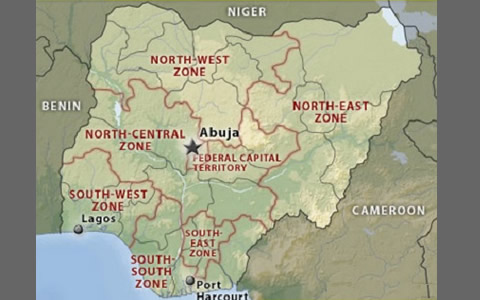Nigeria stands at a critical juncture, facing an array of challenges that demand urgent reform. The nation’s faltering economy, marred by corruption and inefficiency, is compounded by declining social values and a political system that seems more focused on personal gain than public welfare.
With decades of stagnation under the control of entrenched political elites, the need for a revitalised leadership structure is undeniable.
In nearly 64 years of independence, Nigeria has rarely experienced quality leadership characterised by selflessness and focus. Instead, leaders have often exploited ethnic, religious, and sectional differences to manipulate the populace. To address these issues and foster significant progress, it is essential to empower a new generation of leaders, particularly the youth.
Globally, youth are considered to be dynamic, mobile and energetic – the largest segment of the workforce and future leaders. However, the question remains: are Nigerian youths adequately prepared to confront the nation’s challenges?
Dr. Nnamdi Azikiwe once observed: “If you want to know the future of any nation, take a look at what the youths are doing presently.” This remark highlights the current plight of Nigerian youths, who are frequently reported negatively in the media. The lack of a clear national mission for youth engagement has left many vulnerable to ethnic and religious manipulation. Coupled with economic crises and massive unemployment, this has fostered a sense of fear and helplessness, driving some towards anti-social behaviours such as drug abuse and crime.
Despite these challenges, there are positive signs of change, particularly in Lagos State. The State Government is taking proactive steps to empower its youth. For example, the state Deputy Governor, Dr. Kadri Obafemi Hamzat, recently reaffirmed the government’s commitment to engaging young people across various sectors, with significant investments in state-of-the-art facilities and technology, aimed at fostering innovation and growth among the youth. Under Governor Babajide Sanwo-Olu’s administration, substantial infrastructure projects are underway in transportation, agriculture, and food security.
Additionally, Lagos State has introduced initiatives designed to provide ICT opportunities for one million youths. The Ministry of Youth and Social Development offers diverse programmes and certifications, including: those in Artificial Intelligence, to both formally educated and uneducated youths. This initiative aims to expand future prospects for young people.
The Lagos SDGs Youth Alliance platform, launched by the Lagos State Office of Sustainable Development Goals and Investment, further illustrates the State’s commitment to involving youth in sustainable development. This platform is designed to engage young people in achieving the 2030 Agenda and addressing local challenges, recognising their potential to drive societal advancement.
Lagos has also introduced a “Waste to Wealth” initiative, equipping girls and women with skills in recycling and circular economy practices. This programme transforms waste into valuable products, creating job opportunities and supporting sustainable development.
While these local successes are promising, they should be viewed as part of a broader strategy to harness the full potential of Nigeria’s youth.
Non-governmental organisations can play a crucial role in amplifying these efforts. By aligning their initiatives with governmental strategies, NGOs can provide targeted support, facilitate community-driven projects, and foster inclusive youth participation. Their unique grassroots reach and specialised expertise will enable them to complement and enhance governmental efforts, ensuring that the diverse talents of Nigerian youth are effectively harnessed.
The Companion, an association of Muslim men in business and the professions, has set a commendable example by aligning with government initiatives to enhance youth engagement. This alignment demonstrates how NGOs can play a pivotal role in enriching these efforts and driving sustainable development.
The Companion recently highlighted the pressing issue of brain drain, commonly referred to as Japa, at its 2024 Conference and 6th National Discourse held at the National Universities Commission in Abuja. The Discourse addressed the challenges faced by Nigerian youths and emphasised the need for a shift in mindset.
Speakers at the event shed light on the harsh experiences many Nigerian youths face in their quest to leave the country, including exploitation, illegal detention, and more pathetic, extrajudicial killings. They called for a change in perspective, among the youth, urging them to contribute to solving national problems, rather than seeking opportunities abroad as a primary solution.
The speakers praised the vibrant and formidable nature of Nigerian youth, but expressed disappointment at the tendency to waste time on trivial social media activities, rather than focusing on personal and national development.
The Companion’s communique underscored the importance of skill acquisition and education, emphasising that preparing Nigerian youth to be productive contributors is crucial for national development.
The juxtaposition of youth-led initiatives in Lagos and the Discourse on “Japa” highlights the complex challenges and opportunities facing Nigerian youth today. The positive steps taken by Lagos State offer a glimpse into how targeted investment in youth can drive progress. Simultaneously, the Discourse on “Japa” underscores the need for a more structured approach to leveraging youth potential and addressing systemic issues.
Also Read:
- YABATECH, fertile ground for industry partnership — GCEO Royal Frieslandcampina
- FG to 231 rescued Nigerians: Money not flowing on Ghana’s roads
- Osifo, others re-elected as TUC executives
- Trump’s tariffs will have minimal impact on Africa — Okonjo-Iweala
- Understanding the ‘Blue’ in the Blue Economy – A PR Perspective, by Yushau A. Shuaib
These developments underscore the vital role of Nigerian youth in shaping the nation’s future. By creating an environment that supports their growth and contributions, Nigeria can harness the full potential of its young population and move towards a more prosperous and sustainable future.
. Musbau is a Deputy Director in the Public Affairs Unit, Lagos State Infrastructure Asset Management Agency, Alausa, Ikeja, Lagos State.


